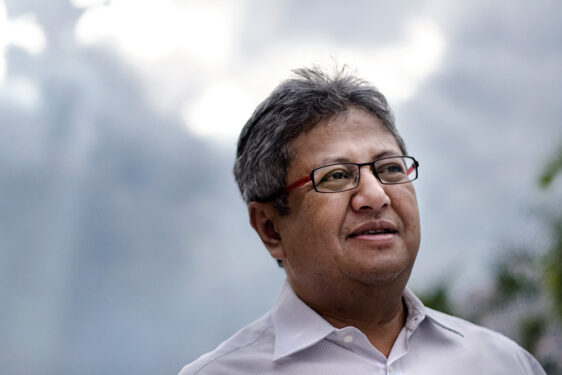 MIDF Research believes that the outlook for Malaysian insurers’ earnings will be less encouraging. This is premised on the softening of economic indicators such as weakening of business confidence and expectations of the insurance sector as well as slumping retail sales growth which will possibly dampen the demand for insurance products.
MIDF Research believes that the outlook for Malaysian insurers’ earnings will be less encouraging. This is premised on the softening of economic indicators such as weakening of business confidence and expectations of the insurance sector as well as slumping retail sales growth which will possibly dampen the demand for insurance products.
MIDF Research analyst Khoo Zhen Ye said: “With the relatively stagnant penetration rate, we are seeing an increasing number of major insurers rolling out competitive products that are more affordable, offering broader coverage, and relaxed underwriting criteria in order to incentivise mass market to gain market share. This is especially getting prominent in the takaful segment in view of the favourable demographics in Malaysia that could entice major insurers to adopt aggressive market share expansion.
“Consequently, the possible lower premium pricing and higher expenses might soften the underwriting margin of insurers under our coverage as it vies for market share in the anticipated increasingly competitive insurance industry. We also postulate that the expected further detariffication of fire insurance will be putting further downward pricing pressure on general insurers.”
The research house expects growth for the life insurance and family takaful segments to remain resilient with the insurance tax relief of RM3,000 and banking on the popularity of investment-linked insurance products.
“All factors considered, we are downgrading our stance on the sector to neutral from positive previously.”
Concluding the 4QFY19 earnings season of the insurance companies under its coverage, MIDF noticed that net earned contributions (NEC) and premiums (NEP) as well as earnings were experiencing tapering growth or a decline.
This trend was particularly more discernible with general insurance companies, possibly due in large part to the detariffication of the motor and fire insurance class. “We are of the view that this might indicate that the insurance sector might be entering into a soft market cycle,” said Khoo.
The research house also posits that the ongoing phased liberalisation of the motor and fire insurance will keep the conventional and takaful general segments under pressure. This is primarily attributable to undercutting of products’ pricing in order to gain market share.
Motor and fire insurance are the two biggest insurance classes in the general segment, accounting for 70% and 80% for general insurance and general takaful respectively.
“While motor has been almost fully liberalised, we postulate that the review of further de-tariffication of fire insurance possibly in coming quarters might be an area of concern for insurers who have a larger exposure such as LPI Capital Bhd,” Khoo added.
On a positive note, MIDF expected the life and family takaful segments to remain resilient. The overall insurance and takaful sectors’ aggregate capital adequacy ratio (CAR) of 230% was well above the regulatory minimum of 130% as at end June 2019.
Moreover, the profitability of the overall insurance and takaful sector has been improving as driven largely by the higher growth of net premiums and contributions in the life insurance and family takaful segments.
This was mainly attributable to improved sales of non-participating endowment policies via bancassurance arrangements, and higher contributions from medical and health takaful products for the lower-income group.
“While the minimum allocation rate (MAR) which came into effect on July 1, 2019 for life insurance is expected to affect new business growth and profitability of investment-linked products (ILP), we believe the growth will be partly sustained by the insurance tax relief of RM3,000 and the increasing popularity of ILP,” Khoo said.
The ILP accounted for 59% and 36% of the new business growth for life insurance and family takaful segments respectively in 2019. “Moving forward, we opine that the growth in the insurance sector will largely come from the life segments as compared non-life which is going through a transition period towards a liberalised market,” he added. – March 5, 2020









